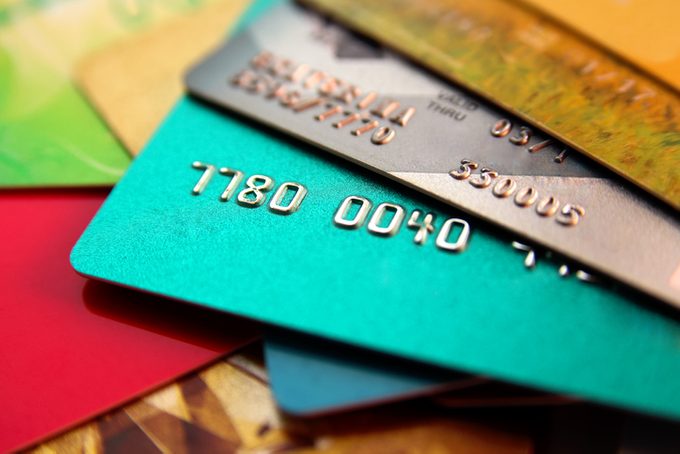Need a New Credit Card? Be Prepared to Wait Two Months
Updated: Feb. 22, 2023

The pandemic and the war in Ukraine have led to a chip shortage, which has impacted industries across the board from car manufacturers to credit card companies.
Although credit cards are the same size they’ve always been, they’ve evolved over the years—from running the card through a roller, to having a magnetic strip, to having an insertable chip, to finally having the ability to tap the card for contactless payments. We use our credit cards more than ever these days—to earn perks and points and to take advantage of extended warranties and damages protection offered by credit card companies—and when we lose a credit card or the number is stolen or otherwise compromised, we feel a little lost.
If your credit card is up for renewal or there’s some other reason you need to replace your card, you might be waiting longer than usual—possibly even two months.
“Since 2020, there’s been a global chip shortage,” explains Monica Eaton, owner & founder of Chargebacks911. “Modern cars need between 1,000 and 3,000 chips, and you can’t make smartphones, laptops, your Xbox—so many things—without them. It’s not a problem specific to the credit card industry, but the credit card industry has certainly been among the industries most adversely affected by it.”
Is There a Shortage of Chips for Credit Cards?
“There is a shortage of almost all chips, affecting everything from Apple’s iPhone, to car manufacturers, to electronic gadget makers, to credit card companies,” explains Chris Hauk, consumer privacy champion at Pixel Privacy. “This has been caused by the COVID-19 pandemic, which has led to delays for chipmakers such as Intel, TSMC and AMD, which means that every industry is competing for a limited number of chips.”
“I’m hearing that smaller credit card issuers (such as credit unions) are experiencing the longest delays,” says Ted Rossman, Senior Industry Analyst at bankrate.com. “They don’t have the same scale as, say, American Express or Chase. And these supply chain challenges should persist for a while longer, perhaps even into 2024.”
How Long Will the Chip Shortage Last?

It’s tough to say how long the chip shortage will last. The COVID-19 pandemic has turned our world upside down in ways nobody predicted, and much remains uncertain. “Towards the end of 2023 and throughout 2024, there will be a predicted surplus in chips,” Eaton says. ” But it’s important to remember that economic projections are not fact.”
China recently ended lockdowns after three years, the war in Ukraine is still far from over, trade wars are still simmering, the labor market is still highly volatile, and we have to remain flexible and able to work with what we have. “The honest truth is that we really don’t know what will happen,” Eaton points out.
It could be months or even years before the chip industry fully catches up, and currently, more people are relying on electronic payments like digital wallets. “Many people are using Apple Pay, Google Pay and other payment schemes, such as the QR code method preferred by Kroger, Walmart and other merchants,” Hauk explains. “Digital payments have increased from less than 5% of in-store purchases to roughly 30% of purchases today.”
Plus, in the case of the Apple Card, following credit approval, users can receive a card number and other information to immediately use the card in their Apple Wallet for Apple Pay. “I see more card issuers doing this in the future, helping alleviate the credit card chip shortage,” Hauk says.
Sources:
- Monica Eaton, owner & founder of Chargebacks911
- Chris Hauk, consumer privacy champion at Pixel Privacy
- Ted Rossman, Senior Industry Analyst, Bankrate.com















